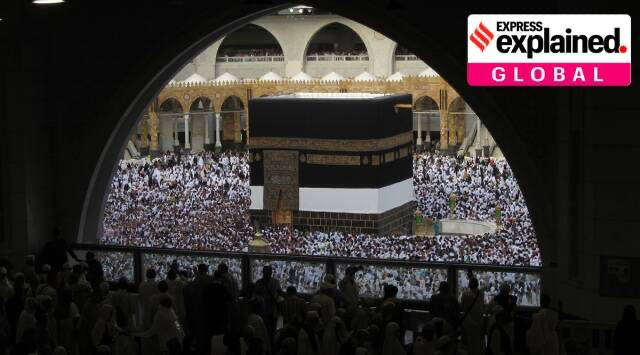Free Courses Sale ends Soon, Get It Now


Free Courses Sale ends Soon, Get It Now



Disclaimer: Copyright infringement not intended.
Context
Details
Allotment of Hajj Quotas
Distribution of Hajj Slots in India
About Hajj Pilgrimage
The Hajj pilgrimage is a significant religious event in Islam, and Saudi Arabia plays a central role in hosting and organizing this annual pilgrimage. The following points provide an overview of the Hajj pilgrimage and Saudi Arabia's involvement.
Significance of Hajj
Duration and Timing
Hosting the Hajj
Infrastructure and Accommodation
Hajj Quotas and Regulations
Security and Safety Measures
Economic and Social Impact
About Saudi Arabia
Topography and Climate
Population and Demographics
Cultural Significance
Oil and Petroleum Industry
Economic Diversification
Political System
Governance Structure
Foreign Relations
|
PRACTICE QUESTION Q) Discuss the key dimensions and evolving nature of the India-Saudi Arabia relationship. (150 words) |
https://indianexpress.com/article/explained/explained-global/hajj-pilgrimage-begins-quota-allotment-8687022/
© 2024 iasgyan. All right reserved